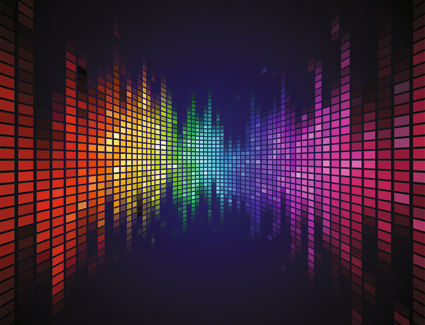Facing the muzak: Imagesound’s Derek Mapp talks jazz, Aim and Black Sabbath

Lift music, or muzak, has got a bad name. But since the 60s, studies have found that in-store background music directly affects customer shopping behaviour and the amount they spend. With the high street relying more and more on a better shopping experience, ambience is everything.
In 1998, angel investor Derek Mapp helped to found Muzak UK (now Imagesound), a background music business delivered by satellite technology. Having sold a chain of 78 pubs in the north of England, he spotted a gap in the market for background music to be tailored for individual restaurants, retailers and hotels, with different tracks playing at different sites at different times of day. “The pub chain ran a food offer to attract families in the early evening. And I went into one pub, where music was playing on CDs behind the bar, and it was Black Sabbath playing at 5.30pm on a Thursday.”
Mapp tells City A.M. about Japanese restaurants, Dubai hotels and moving away from muzak.
How did you get into background music?
When you get a large exit, which I did from the pub chain, you start to think you’ve got the Midas touch. Of course, you don’t.
When we started in 1998, we rented six pre-formed music channels from Holland, which was similar to streaming a radio station via satellite. It was crude and basic but clients saw the value and we got an injection of capital from a venture capital trust. In 2004, the company decided it wanted to expand and listed on Aim. The firm wasn’t big enough to be listed, which is one of Aim’s core failings. There was too much debt on its balance sheet, and it missed its targets the next year. I decided to become more actively involved and set about restructuring it as executive chairman.
In 2011 we did a management buy-out with a private equity player, and we’ve become a music and digital messaging company which supplies to 22,000 sites in the UK and abroad.
How has the technology changed?
At one time, a huge piece of hardware would sit in the hotel or restaurant manager’s office which was updated by CDs. Then there was a move to connect these boxes to the internet where possible. And about three years ago, we moved away from the internet hardware business to become an internet protocol provider, which allowed us to distribute our music and messaging through our own software which we have the IP for. That allows us to add or change a track at a moment’s notice.
It’s not just about audio. We supply visuals to 70 per cent of high street fitness chains. If you’re pedalling away on a bike, you might want to plug in your own music but still have something to look at.
How much music do you have to listen to?
A lot of work goes into profiling music for each of our clients’ sites. You might have a Japanese restaurant in a Dubai hotel. So what do you play? There should probably be a mix of European, local and Japanese music. But of 20 different categories of Japanese music, which is appropriate for the venue? In any hotel, we may need to speak to the general manager about the music in reception, the food and beverage manager about the music in the restaurant. The music at breakfast needs to be different to dinner because there is a different atmosphere. We are the only company which goes to a hotel site to do a profile, because each is unique.
We have profiled 300,000 tracks and rejected 2m. This week we will listen to 300 new ones and 40 might be suitable for our clients. Our screening process includes everything from filtering out profanity to codifying genres to a sophisticated extent. We have six different categories of jazz, for example.
Is it hard to get away from the “muzak” label?
We’ve tried to create a more dynamic experience. Muzak is used as a disparaging term but background music is important for creating the right ambience.
It doesn’t even need to be music. It is important to have white noise playing in a banking hall to stop strangers overhearing your conversation with a clerk. And we have blank music playing in hotels in the United Arab Emirates during the call to prayer. We use GPS software which determines the geographical location of the hotel to work out exactly when call to prayer will occur, which is based upon the sun’s movements, depending on when it has risen that day.